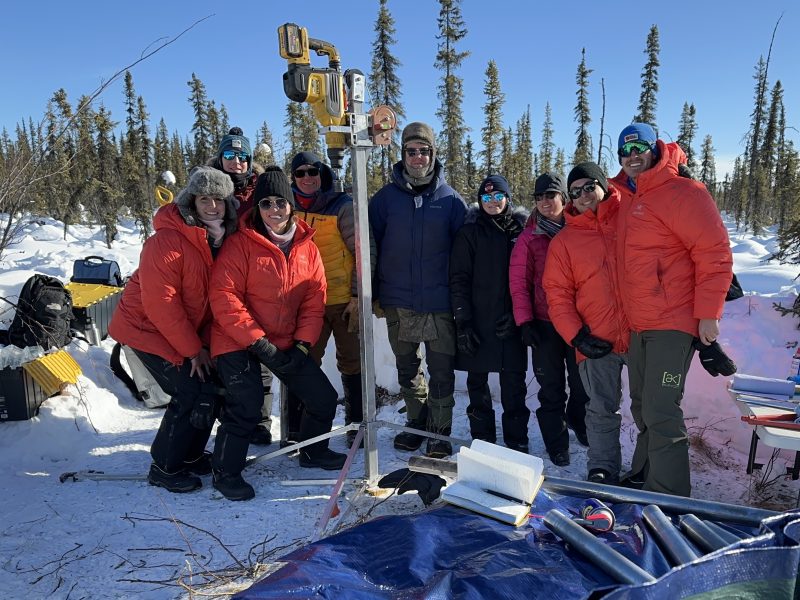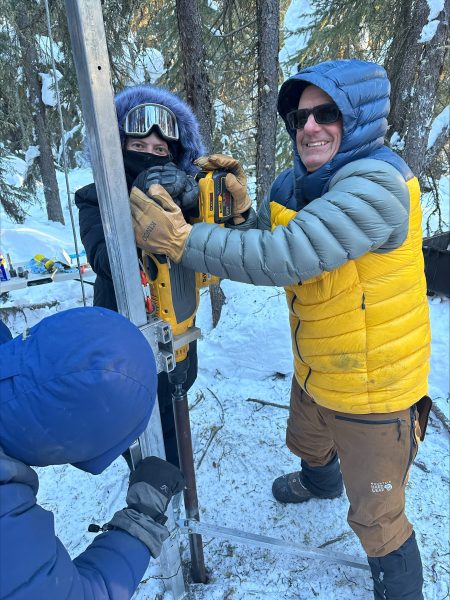Spring Break in Fairbanks, Alaska
December 8, 2024

During spring break of my senior year as an undergraduate at UT, March 2023, I had the opportunity to travel to Fairbanks, Alaska, to work with a team of researchers from UT Austin, Sandia National Labs, and the University of Fairbanks, Alaska.

At the time, I was majoring in chemistry and had recently been introduced to my current advisor, Peter Flemings. Peter was looking for a graduate student to focus on the geochemical processes in thawing permafrost — fitting my research interests perfectly. Peter invited me to join him on a field expedition to Alaska to recover permafrost and excitedly I agreed. The goal was to collect material for each researcher’s permafrost experiments, and mine would focus on simulating a warmer climate and measuring the emitted carbon dioxide and methane. So, on the first day of spring break I packed my bags full of cold weather gear and flew to Alaska.
We set out for our first day in the field, bundled head-to-toe and ready to face the freezing temperatures. Near our first site, we packed our drilling equipment onto snowmobiles and headed down a small trail, our boots crunching on the crisp snow as we walked behind the snowmobiles. At the site, we quickly set up our warming tent, processing tables and drill rig. The drill was well equipped to cut through and collect the frozen soil below our feet, but it would still be a slow, tedious task. We steadily inched through the frozen ground, collecting half a meter of soil at a time. Once the section was collected, we reversed the pipes out of the ground for the material to be extruded and packed while the drilling resumed. After a full day of labor, we were rewarded with three meters of core and clothes that reeked of WD-40. This drilling process was repeated each day during our expedition, and at the end of the week we shipped our newly recovered prizes back to UT.
I had no idea what to expect on this trip, but it turned out to be one of the most amazing experiences. Each day tromping through the snow, breathing the cold, fresh air, and drilling for our treasure was thrilling. It was a feeling I knew I needed more of. This trip also gave me the unique opportunity to evaluate my potential advisor as I was not yet officially committed to UT for graduate school. Fortunately, Peter was incredible and I knew I would learn much from him.
A semester before this trip I felt lost as I faced my upcoming graduation. Now, a year into my master’s program, I feel incredibly lucky to be where I am. The research this team is doing fills me with excitement and hope, as we have so many intelligent minds working together to understand how the Arctic, and our planet, will change as we continue to face global warming.
Riley Garrett
Master’s student
